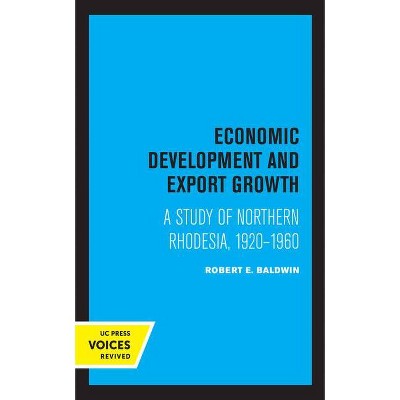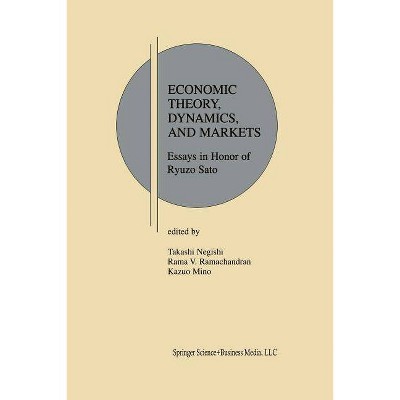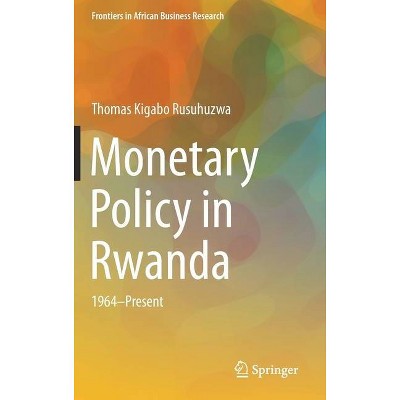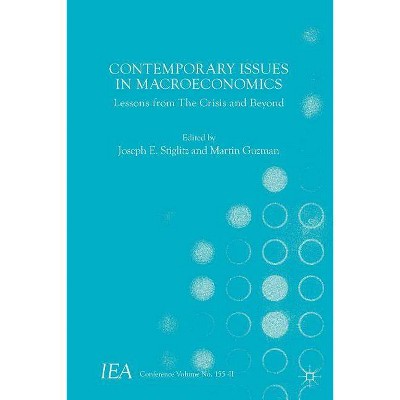Learning and Expectations in Macroeconomics - (Frontiers of Economic Research) by George W Evans & Seppo Honkapohja (Hardcover)
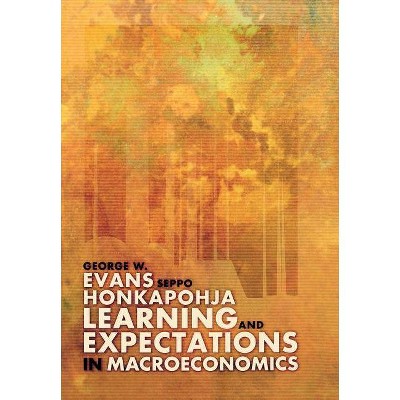
Similar Products
Products of same category from the store
AllProduct info
<p/><br></br><p><b> Book Synopsis </b></p></br></br><p>A crucial challenge for economists is figuring out how people interpret the world and form expectations that will likely influence their economic activity. Inflation, asset prices, exchange rates, investment, and consumption are just some of the economic variables that are largely explained by expectations. Here George Evans and Seppo Honkapohja bring new explanatory power to a variety of expectation formation models by focusing on the learning factor. Whereas the rational expectations paradigm offers the prevailing method to determining expectations, it assumes very theoretical knowledge on the part of economic actors. Evans and Honkapohja contribute to a growing body of research positing that households and firms learn by making forecasts using observed data, updating their forecast rules over time in response to errors. This book is the first systematic development of the new statistical learning approach. <p/> Depending on the particular economic structure, the economy may converge to a standard rational-expectations or a rational bubble solution, or exhibit persistent learning dynamics. The learning approach also provides tools to assess the importance of new models with expectational indeterminacy, in which expectations are an independent cause of macroeconomic fluctuations. Moreover, learning dynamics provide a theory for the evolution of expectations and selection between alternative equilibria, with implications for business cycles, asset price volatility, and policy. This book provides an authoritative treatment of this emerging field, developing the analytical techniques in detail and using them to synthesize and extend existing research.</p><p/><br></br><p><b> From the Back Cover </b></p></br></br><p>"This excellent book brings together and extends two decades of work on learning in self-referential equilibrium models in macroeconomics. The discussions presented by George Evans and Seppo Honkapohja are technically superb, well written, and well motivated in terms of content."<b>--Thomas Sargent, Stanford University and Hoover Institution</b></p><p>"An important methodological and technical achievement that will set the standard against which all other macroeconomic learning analyses must be measured. Economists need to know how to analyze systems under the recursive learning assumption and what kind of results can be obtained. Evans and Honkapohja have fully worked out methods to analyze the resulting dynamics."<b>--James Bullard, Assistant Vice President and Economist, Federal Reserve Bank of St. Louis</b></p><p/><br></br><p><b> Review Quotes </b></p></br></br><br>An excellent, wide ranging and detailed survey of what is known about the stability under learning of a wide variety of models. . . . [A]n essential reference for researchers.<b>---Margaret Bray, <i>Journal of Economics</i></b><br><p/><br></br><p><b> About the Author </b></p></br></br><b>George W. Evans</b> is John B. Hamacher Professor of Economics at the University of Oregon and has held positions at the London School of Economics, Stanford University, and the University of Edinburgh. <b>Seppo Honkapohja</b> is Professor of Economics at the University of Helsinki, where he has currently been appointed Academy Professor. Professors Evans and Honkapohja have published extensively in economic journals, and each is best known for his respective research on expectations and learning in dynamic models. This book is the outgrowth of over fifteen years of collaboration between them.
Price History
Price Archive shows prices from various stores, lets you see history and find the cheapest. There is no actual sale on the website. For all support, inquiry and suggestion messagescommunication@pricearchive.us


